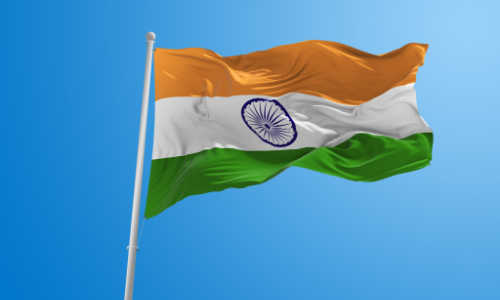
The Indian Government is set to impose a 28% tax on the fund that online gaming firms collect from consumers. The Goods and Services Tax Council gave assent to levy a 28% indirect tax on all online gaming, casinos, and horse racing. This meant that the loophole of fantasy sport companies being able to justify their offerings as skill-based, stood closed.
Online gaming has proven to be one of the fastest-growing consumer internet businesses in India in recent years. With the implementation of the newly imposed tax, Indian authorities are hoping to start generating revenue from the sector, reported Reuters.
However, industry representatives, as well as organizations such as The All India Gaming Federation, have raised concerns about the government decision. Roland Landers, the organization’s Chief Executive, stated: “This decision will wipe out the entire Indian gaming industry and lead to lakhs of job losses and the only people benefitting from this will be anti-national illegal offshore platforms”. Malay Kumar Shukla, the Secretary of the E-Gaming Federation also expressed his reservations by saying: “A tax burden where taxes exceed revenues will not only make the online gaming industry unviable but also boost black-market operators at the expense of legitimate tax-paying players, further undermining the industry’s image and capacity to survive”.
Related: India Proposes Self Regulation For Online Gaming Companies
The Finance Minister, Nirmala Sitharaman has said that the Goods and Services Tax Council would be working closely with the Information Technology Ministry on recognising games under the online gaming category. The IT Ministry has further requested gaming firms to form self-regulating bodies to determine permitted games.
The government has also amended its IT law to crack down on online games offering betting services. Aaditya Shah, Chief Operating Officer at the gaming app IndiaPlays, shared: “The implementation of a 28% tax rate will bring significant challenges to the gaming industry. This higher tax burden will impact companies’ cash flows.”
Kishore Kumar, Indirect Tax Lead at Taxmann, said: “The proposal will bring game of skill at par with wagering contracts, which are in the nature of gambling and betting.”
Gaming companies such as Dream11 have gained immense popularity over the past few years and have even been able to raise large investments. The revenue of fantasy gaming platforms during the Indian Premier League rose 24% from the prior year to over $342 million with over 61 million users participating.
With the government’s move, the taxation on gaming platforms is set to rise nearly 1000%, something which the industry representatives have expressed alarm over. Currently, the tax rate is 15%.
“We understand that the game falls in a grey area where there is no legal clarity on the nature of game. However we still believe that users of Dream 11 constitute of those who are smart enough to make decisions on their own”, shared a Dream 11 spokesperson.
With the new proposed tax code in place, there is likely to be an enormous dent in the sector. Online gaming companies will have to come up with ways to cope with the high taxation rates set by the government and how to ensure that their consumers are not affected.
Featured News
Big Tech Braces for Potential Changes Under a Second Trump Presidency
Nov 6, 2024 by
CPI
Trump’s Potential Shift in US Antitrust Policy Raises Questions for Big Tech and Mergers
Nov 6, 2024 by
CPI
EU Set to Fine Apple in First Major Enforcement of Digital Markets Act
Nov 5, 2024 by
CPI
Six Indicted in Federal Bid-Rigging Schemes Involving Government IT Contracts
Nov 5, 2024 by
CPI
Ireland Secures First €3 Billion Apple Tax Payment, Boosting Exchequer Funds
Nov 5, 2024 by
CPI
Antitrust Mix by CPI
Antitrust Chronicle® – Remedies Revisited
Oct 30, 2024 by
CPI
Fixing the Fix: Updating Policy on Merger Remedies
Oct 30, 2024 by
CPI
Methodology Matters: The 2017 FTC Remedies Study
Oct 30, 2024 by
CPI
U.S. v. AT&T: Five Lessons for Vertical Merger Enforcement
Oct 30, 2024 by
CPI
The Search for Antitrust Remedies in Tech Leads Beyond Antitrust
Oct 30, 2024 by
CPI